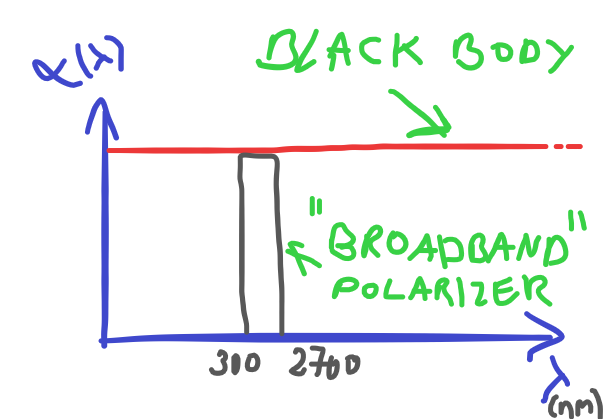Let a system be composed of two perfect linear polarizers, where the axis of the first one is perpendicular to the axis of the other, so they do not let any light pass through the second polarizer. Let a plane harmonic wave of initially unpolarized light incide on the system, such that after exiting the first polarizer, the light will now be linearly polarized in the direction perpendicular to the axis of the second one, so it will be completely absorbed by it. Now, if we were to cover the system of two polarizers with a box and study only the input and output of energy of the sytsem, we would conclude whatever is inside the box absorbs all the energy that is given to it, and that by definition is a black body.
My question is, is this result correct? If so, does the system emit thermal radiation as a black body? Interestingly enough, the black body-like behaviour of the system depends on the angle between the axis of the two polarizers. Naturally, the same behaviour could be obtained from using a single polarizer and a perpendicularly polarized beam of light, which is precisely the effect of the first polarizer.

